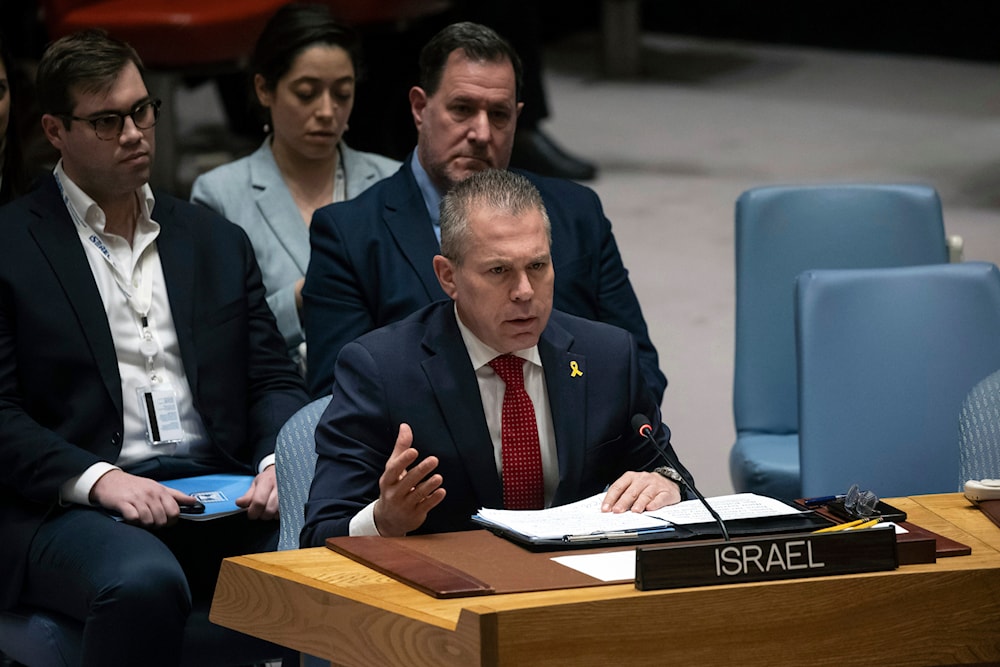'Israel' can't go into full war in Middle East without West: CNN
The Carnegie Middle East Center's director notes that pleas by Israeli allies to exercise restraint after Iran's attack last weekend were most likely a major factor in how Israeli officials calculated the strength to retaliate.
-

Israeli Ambassador to the United Nations Gilad Erdan speaks during a Security Council meeting at United Nations headquarters, Thursday, April 18, 2024. (AP)
The director of the Carnegie Middle East Center research foundation, Maya Yahya, told CNN's John Vause that for "Israel" to wage a full-scale war in the Middle East, it would need substantial support from its allies, especially the US.
"Israel does not have the capacity for a long-term all-out war without external support. It would need the commitment from the United States to continue providing arms. It relies on the United States and other Western powers on a number of military fronts," she said.
She noted that pleas by the occupation's allies to exercise restraint after Iran's attack last weekend were most likely a major factor in how Israeli officials calculated the strength to retaliate.
“It was clear that there was tremendous (international) pressure on Israel not to escalate things further."
Amid pressure from the US to avoid escalations in the region, the Israeli war cabinet convened yesterday for an hours-long meeting that ended with no clear course of action.
Read next: War with Hezbollah to be 'Israel's' deadliest: 130-page Israeli report
Although "Israel" was allegedly ready for an immediate counterattack, US President Joe Biden urged the occupation to halt any operation.
Israeli Channel 12 reported that although Iran did not incur much damage throughout its attack, the war cabinet has been divided, with some Israeli ministers calling for an immediate attack against Iran, while others would rather wait, prepare, and then attack.
US army reinforcements are on their way to the Middle East, amid worries that "Israel's" war on Gaza may spark a larger regional conflict, especially amid the anticipated Iranian retaliation to the Israeli attack on its consulate in Syria.
One US defense official told The Washington Post that "additional assets" were being moved to "bolster regional deterrence efforts and increase force protection for U.S. forces."

 2 Min Read
2 Min Read








